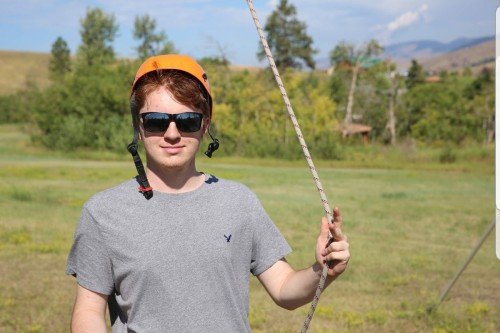At MSK Kids, we offer treatments for every type of brain and spinal cord tumor. Our team of experts works with your family to create a personalized care plan. Your child’s specialized pediatric care team includes neuro-oncologists, neurosurgeons, neurologists, radiation oncologists, neuroradiologists, neuropathologists, nurse practitioners, and nurses.
We all work together for the best possible outcome for your child’s brain tumor. Our team works closely with child life specialists, social workers, psychologists, and rehabilitation medicine experts (including physical, occupational, and speech therapists) who are specially trained to care for children with brain and spinal cord tumors. Everyone on your child’s care team knows how to meet their unique needs.
We offer children with brain and spinal cord tumors leading-edge treatments, some using technologies not available anywhere else. We do everything in our power to give your child the best chance for a cure and the highest quality of life.
Your child may be a good candidate for one or more of the following:
- surgery, in which the tumor is physically removed during a procedure in the operating room
- radiation therapy, including proton therapy, which uses a high-energy x-ray beam to kill tumor cells
- chemotherapy or targeted therapy, which are medications to kill cancer cells
- close observation through regular checkups and imaging scans if no immediate treatment is needed
- a combination of any of the above
Your child’s recovery depends on a number of factors. These may include the tumor type and location, and if the tumor has spread to other parts of the body (metastasized). We work with you every step of the way to ensure that you are informed and supported during your child’s treatment and beyond.
We understand that you may have questions and concerns about your child’s care plan. We have age-appropriate discussions with children and their parents to make sure that everyone is comfortable with each step in the process. Our doctors are available 24 hours a day, seven days a week, to answer your questions.
Surgery to treat pediatric brain & spinal cord tumors
The best surgery outcomes for children with brain and spinal cord tumors begin with good decision-making. Our goal is to come up with the most-effective treatment with the smallest risk. Knowing when to offer surgery and defining its main goal is essential. Our pediatric neurosurgeons are among the most experienced in the field. We are nationally known experts in the most-advanced surgical techniques for treating brain and spinal cord tumors in children. We handle some of the most complex tumors with skill and familiarity. These include tumors of the brain stem, which connects the brain to the spinal cord; the intraventricular compartment, which is deep inside the brain; the pineal region, where several hormones are produced; and the spinal cord.
Advances in neurosurgery that have pushed the field forward in the past 20 years are in regular use at MSK. We use the latest surgical technologies, including:
- intraoperative MRI, which provides scans during surgery, helping surgeons find the best way to remove tumors
- intraoperative brain mapping, which uses a tool like a GPS system to show how close surgeons are to important parts of the brain
- intraoperative radiation therapy, which uses radiation during surgery
- intraoperative neurological monitoring, which allows us to make sure your child’s neurological functioning is still intact during surgery
- computational modeling for surgical planning, so our experts can map out a surgery in exact detail before it happens
- awake craniotomy, during which your child stays conscious while we perform surgery
- laser interstitial thermal therapy, which uses heat to kill tumors
Our pediatric neurosurgical team has pioneered the use of minimally invasive endoscopic brain surgery in certain cases. These procedures use small incisions (cuts), tiny cameras, and very thin instruments. Minimally invasive surgery reduces pain after the procedure and can shorten your child’s stay in the hospital. These methods help speed recovery, so your child can return to their daily activities as quickly as possible.
Our neurosurgeons also conduct laboratory and clinical research to treat brain tumors in children that are considered untreatable elsewhere. MSK Kids is nationally regarded for developing drug delivery techniques for childhood brain tumors that cannot be removed by surgery.
Learn more about pediatric neurosurgery here.
Radiation Therapy to treat pediatric brain & spinal cord tumors
The goal of radiation therapy is to safely shrink or eliminate tumors, including those that cannot be removed surgically. There are many types of radiation treatment. What is best for your child depends on the type of cancer, the location of the tumor, and whether it has spread to other areas of the body. For children who may benefit from radiation therapy, we take great care to protect as much normal tissue as possible. New techniques and our high level of expertise allow our dedicated pediatric radiation oncologists to target brain and spinal cord tumors more precisely. This way we can deliver the most radiation with the least damage to healthy cells and the lowest possible risk of side effects.
These are the most common types of radiation therapy.
- Proton therapy: This is a highly targeted form of radiation therapy. It destroys tumors by delivering charged particles called protons directly into cancer cells. The precise nature of proton therapy minimizes radiation exposure to nearby healthy tissue. It also decreases the risk of side effects.
- Stereotactic radiosurgery: This specialized form of treatment delivers high-dose radiation. It typically takes one to five sessions, instead of multiple smaller doses over time.
- Intensity-modulated radiation therapy (IMRT): Using computer programs, we can calculate and deliver different doses of radiation directly to the tumor from different angles at higher, more effective doses. IMRT reduces side effects and minimizes exposure to surrounding healthy tissues and organs.
- Intraoperative radiation therapy (IORT): This intensive treatment is given during surgery. It delivers direct radiation to a tumor while sparing surrounding healthy tissue. IORT can treat tumors that are difficult to remove completely during surgery. It allows for higher, more effective doses of radiation compared to conventional radiation therapy. During IORT, the surgeon can temporarily move nearby organs or shield them from radiation exposure. This allows us to give a higher, more effective dose of radiation.
Learn more about pediatric radiation therapy here.
Chemotherapy to treat pediatric brain & spinal cord tumors
Chemotherapy uses medicine to destroy, stop, or slow down the spread of cancer cells. It can be effective for certain types of brain and spinal cord tumors. There are many chemotherapy drugs. If our doctors recommend chemotherapy for your child, we’ll create a personalized care plan that gives them the best chance for success. Your child’s care team can answer questions about the medicines that we recommend.
Learn more about pediatric chemotherapy here.
Molecular tumor analysis
In addition to performing traditional biopsies, at MSK Kids we can study the genetic mutations in a brain tumor and its molecular makeup. These tests may provide information to help personalize your child’s care plan.
We offer the most-advanced genetic testing. This includes MSK-IMPACT™, Archer FusionPlex, and circulating free DNA analysis. Molecular tumor analysis can also be performed on tumor samples obtained at outside institutions.
Neurocognitive evaluation and rehabilitation
At MSK Kids, we have experts in all aspects of child development: academic, emotional, and social. Brain tumors, radiation therapy, chemotherapy, and hormone therapies can result in cognitive changes. Our pediatric neuropsychology experts routinely do neurocognitive assessments to look for any changes in attention, memory, or other aspects of your child’s thinking.
We can determine the most likely causes and make recommendations to help your child. We can also discuss any support your child may require at school due to these changes. In some cases, medications may help reduce some aspects of cognitive difficulties.
Innovative treatments at MSK Kids
Our active participation in national clinical trials through the Pediatric Brain Tumor Consortium (PBTC), Children’s Oncology Group (COG), and Neurofibromatosis Clinical Trials Consortium (NFCTC) means that we can offer children with brain and spinal cord tumors the very latest in care.
MSK Kids also offers many advanced brain tumor treatments that are unique to Memorial Sloan Kettering:
- Convection-enhanced delivery is available for children with diffuse intrinsic pontine glioma, a fatal brain stem tumor. This is done during surgery to deliver medicine directly to the site of the tumor.
- Intrathecal radioimmunotherapy can treat certain types of cancer in the brain, spine, and leptomeninges (the membranes that surround the brain and the spinal cord). This treatment uses monoclonal antibodies attached to radioactive substances that are given directly to the cerebrospinal fluid. The radiation kills the cancer cells without damaging normal tissue in the brain or spine. MSK Kids is one of the few programs in the world committed to curing cancers of the leptomeninges.
- Molecular targeted drug therapy (also known as “precision medicine”) can fight tumors based specific genetic mutations present in the tumor. These medicines can be very effective and produce fewer side effects than traditional treatments.
- State-of-the-art imaging services include PET, CT, MRI, and PET/MRI scans. Your child’s comfort is our goal. We offer CinemaVision, an MRI video system that transforms the MRI experience into a 3-D virtual entertainment system. Children can watch their favorite movie or listen to music while communicating with MSK Kids staff. The system also greatly reduces the noise that traditionally accompanies an MRI. This system has significantly decreased the need for sedation in young patients before an MRI.
Follow-Up care for pediatric brain & spinal cord tumors
Follow-up care after cancer treatment ends is critical to the health and well-being of childhood brain cancer survivors. Through our Long-Term Follow-Up Program, we screen, monitor, and manage the health of young survivors beginning approximately two years after treatment ends.
We check for potential late complications and ensure that our patients are achieving the best possible quality of life. The program team includes pediatric endocrinologists and survivorship experts.
We also perform neuropsychological testing during and after treatment. This allows us to identify any cognitive, academic, social, emotional, and behavioral issues. Our neuropsychology and child psychology teams work directly with children, parents, and teachers.
Together, we develop specific plans, interventions, and accommodations so your child’s transition back to school is as smooth as possible. We want to help your child cultivate their academic and personal strengths.








